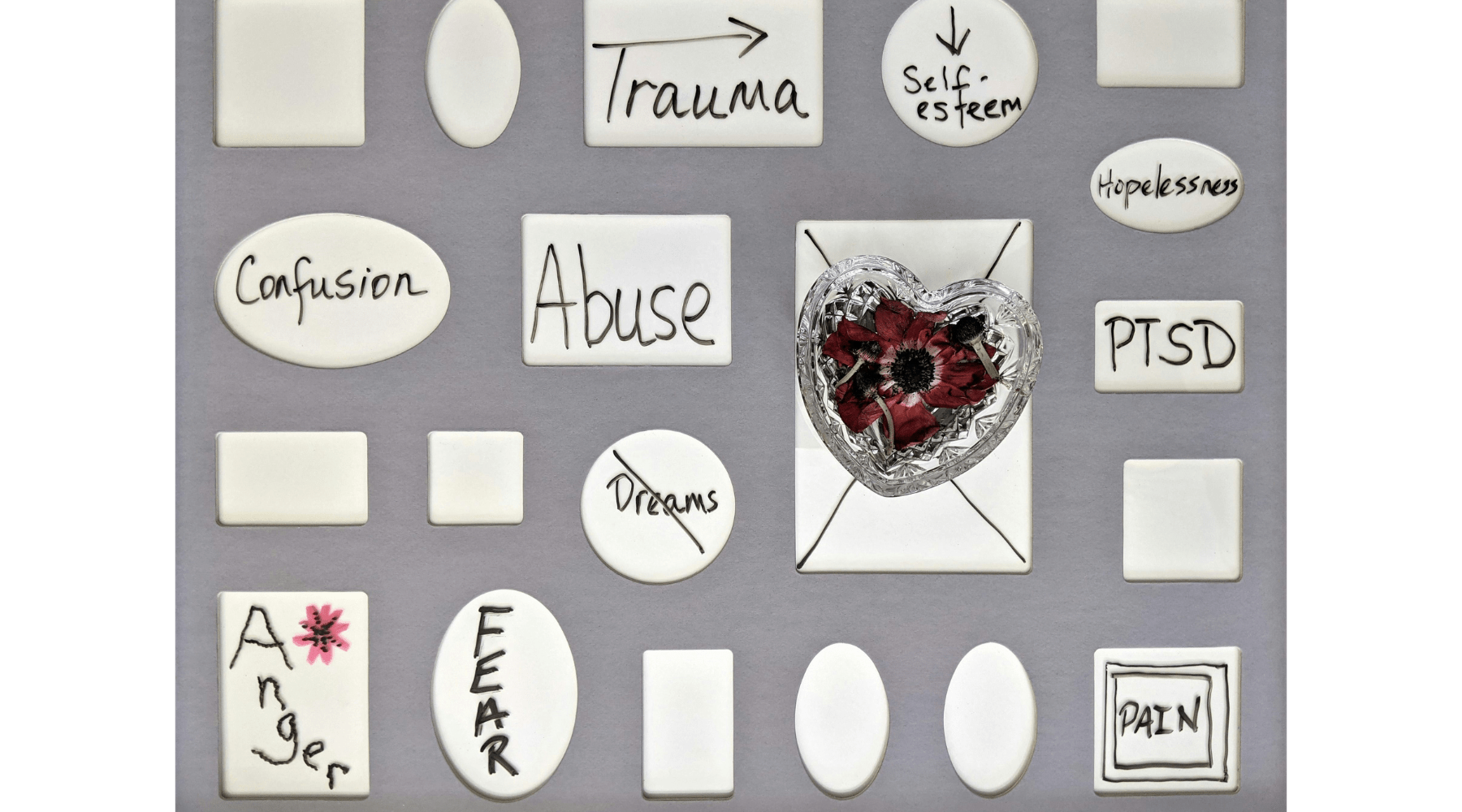
The Silent Struggle: Understanding Chronic Pain Suffering
In the quiet depths of daily life, a profound battle silently rages on for those enduring chronic pain suffering. The intricate interplay of acute symptoms and ongoing management dances through the fabric of one's health and well-being. As shadows of pain linger in the body, a beacon of hope emerges in the form of innovative treatments and therapies. In this space of understanding and compassion, we explore the nuances of physical and emotional healing for those navigating the complexities of chronic conditions. Join us on a journey towards relief, empowerment, and a renewed zest for life.
The Silent Struggle Unveiled
In the quiet depths of chronic pain suffering, individuals navigate a daily battle that often goes unseen by those around them. The constant ache that lingers in the body is more than just physical; it seeps into every aspect of life, shaping each moment with its unrelenting presence. While medical treatments may offer temporary relief, the underlying nerve conditions persist, demanding a comprehensive approach to management. For those grappling with chronic pain, each day brings new challenges and uncertainties, testing their resilience and resolve. In this silent struggle, empathy and understanding play crucial roles in providing the support needed to cope with the invisible burden carried by so many. Together, we can help lift the veil of silence surrounding chronic pain suffering, offering a lifeline of compassion and hope to those in need.
The Impact of Chronic Pain Suffering
Have you ever stopped to consider the profound impact of chronic pain on a person's life? It goes beyond just physical discomfort; it seeps into every aspect of daily living. From struggling to complete simple tasks to missing out on cherished moments, chronic pain can cast a dark shadow over one's existence. The relentless nature of this condition can lead to feelings of isolation and despair, affecting not only the individual but also their loved ones. Despite the stoic facade that many may wear, the toll of chronic pain suffering is undeniable. Understanding this impact is crucial in providing effective support and management strategies for those navigating this challenging journey. By acknowledging the far-reaching consequences of chronic pain, we can truly begin to address the holistic needs of individuals grappling with these debilitating symptoms.
Understanding the Complexity of Chronic Pain
In the intricate web of chronic pain, understanding its complexity is crucial. It goes beyond the surface symptoms, delving deep into the physical and emotional layers of suffering. Chronic pain is not just a sensation; it's a daily battle that affects every aspect of life. From nerve pain to back conditions, the impact can be profound. Medical treatments offer relief, but true management requires a holistic approach that considers both body and mind. Therapy and natural remedies play a vital role in alleviating symptoms and improving quality of life. By unraveling the intricate threads of chronic pain, we can navigate towards a path of healing and hope. Understanding the nuances of chronic pain is the first step towards empowering ourselves and others in this silent struggle.
Coping Strategies for Managing Chronic Pain Suffering
In the relentless battle against chronic pain suffering, finding effective coping strategies is paramount. For individuals navigating the daily challenges of persistent pain, incorporating a holistic approach to pain management can offer a glimmer of hope. From mindfulness techniques to gentle physical therapy exercises, exploring diverse methods tailored to individual needs can make a significant difference in enhancing quality of life. Embracing self-care practices and seeking support from healthcare professionals can empower individuals to regain a sense of control over their health journey. By prioritizing mental and emotional well-being alongside physical comfort, those grappling with chronic pain can pave the way towards a more balanced and fulfilling life. Remember, resilience and perseverance are key allies in the ongoing quest for relief and healing amidst the complexities of chronic pain conditions.
Exploring Natural Remedies for Chronic Pain Relief
Delving into the realm of natural remedies for chronic pain relief opens up a world of possibilities for those seeking holistic approaches to manage their symptoms. From herbal supplements to mind-body techniques, there are various avenues to explore in the quest for alleviating persistent pain. Incorporating practices like acupuncture or yoga into your daily routine can provide not only physical relief but also a sense of empowerment in taking control of your health. Additionally, embracing the healing properties of essential oils or incorporating anti-inflammatory foods into your diet can complement traditional medical treatments for a well-rounded approach to chronic pain management. By exploring these natural remedies, individuals may discover new ways to find relief and improve their overall quality of life amidst the challenges of chronic pain suffering.
The Emotional Toll of Chronic Pain Suffering
Navigating the depths of chronic pain brings not only physical challenges but also a heavy emotional burden. The unrelenting nature of chronic pain can lead to feelings of frustration, isolation, and even depression. People grappling with chronic pain may find themselves struggling to maintain their mental well-being as they navigate the complexities of daily life. The constant presence of pain can wear down one's spirit, making it essential to address the emotional toll of chronic pain suffering. Seeking support from loved ones, mental health professionals, or support groups can provide a lifeline in managing the emotional challenges that accompany chronic pain. By acknowledging and addressing the emotional impact of chronic pain, individuals can work towards holistic healing and find ways to cultivate resilience in the face of adversity.
Empathy and Support: Navigating Chronic Pain Together
As you navigate the challenging journey of chronic pain, finding empathy and support can make a significant difference in your experience. Connecting with others who understand the daily struggles of chronic pain suffering can provide a sense of comfort and solidarity. Together, you can share coping strategies, offer words of encouragement, and remind each other that you are not alone in this battle. By fostering a community of understanding and compassion, you can help each other navigate the ups and downs of managing chronic pain. Remember, seeking support is not a sign of weakness but a powerful tool in your arsenal for facing the emotional and physical toll of chronic pain. Let's stand together, united in empathy, as we navigate the complexities of chronic pain and strive for a brighter tomorrow.
Breaking the Silence: Sharing Stories of Chronic Pain Suffering
In a world where chronic pain can often feel isolating, sharing personal stories can be a powerful way to break the silence and foster connection. The experiences of individuals navigating chronic pain suffering can offer insights into different coping mechanisms, treatment approaches, and emotional struggles. By opening up about their journeys, people not only find healing through vulnerability but also create a sense of community among those facing similar challenges. These shared narratives serve as a reminder that no one is alone in their battle against chronic pain and that support and understanding can be found in the collective strength of shared stories. Through the act of sharing, individuals not only empower themselves but also inspire others to seek help, advocate for better treatment options, and find hope in the midst of their pain.
Conclusion: Finding Hope and Healing in the Midst of Chronic Pain
In the midst of chronic pain, finding hope and healing can seem like an insurmountable task. However, it is essential to remember that healing is a journey, not a destination. By embracing a holistic approach that combines medical treatments with natural remedies and emotional support, individuals can gradually regain control over their lives. It is crucial not to underestimate the power of community and empathy in navigating the challenges of chronic pain. Sharing stories and experiences can foster a sense of connection and understanding, reminding sufferers that they are not alone in their struggles. With perseverance and a proactive mindset, it is possible to discover new coping strategies and find moments of relief amidst the pain. Remember, there is always hope for a brighter tomorrow, even in the darkest of days.
People also ask
What chronic pain does to a person?
Chronic pain can have a profound impact on a person's life. It can lead to physical limitations, affecting daily activities such as walking, standing, or even sitting comfortably. The persistent pain can also result in emotional distress, causing feelings of frustration, anxiety, and depression. Sleep disturbances are common, as the pain can make it difficult to fall asleep or stay asleep throughout the night. Relationships may suffer as well, as the individual's mood and energy levels are affected by the constant pain. Work or school performance may decline due to the distraction and discomfort caused by chronic pain. Overall, chronic pain can significantly decrease quality of life, leading to a sense of isolation and hopelessness for those experiencing it. It is important for individuals dealing with chronic pain to seek support, both medically and emotionally, to manage the impact it has on their well-being.
What to do when chronic pain is unbearable?
When chronic pain becomes unbearable, it is crucial to seek medical assistance immediately. Consult with a healthcare provider to determine the underlying cause of the pain and develop a personalized treatment plan. Consider incorporating a combination of traditional and alternative therapies, such as physical therapy, acupuncture, or mindfulness techniques. Prioritize self-care practices, including adequate rest, proper nutrition, and stress management. Stay consistent with prescribed medications and follow-up appointments to monitor progress. Engage in regular physical activity within your limits to improve flexibility and strength. Seek support from friends, family, or support groups to cope with the emotional impact of chronic pain. Remember that you are not alone in this journey, and there are resources available to help you manage and alleviate your pain.
What are the 5 A's of chronic pain?
The 5 A's of chronic pain are assessment, acknowledgment, analgesia, assistance, and action. Assessment involves evaluating the pain through various methods to determine its cause and severity. Acknowledgment involves recognizing and validating the patient's pain experience, as well as understanding its impact on their daily life. Analgesia refers to the use of appropriate pain management strategies, such as medications or therapies, to alleviate pain and improve quality of life. Assistance involves providing support and resources to help the patient cope with and manage their pain effectively. Action entails developing a comprehensive treatment plan that addresses the physical, emotional, and psychological aspects of chronic pain to achieve optimal outcomes for the patient. By following the 5 A's approach, healthcare providers can provide holistic and patient-centered care for individuals living with chronic pain.
What is the chronic pain syndrome?
Chronic pain syndrome is a complex condition characterized by persistent pain that lasts for an extended period, typically lasting for at least three to six months. It can result from various factors, including injury, medical conditions, or unknown causes. The pain experienced in chronic pain syndrome can be debilitating and have a significant impact on a person's quality of life. Unlike acute pain, which serves as a warning sign of injury or illness, chronic pain persists beyond the normal healing time and may not have an identifiable cause. Symptoms can vary widely and may include sharp or dull pain, throbbing, burning, or aching sensations. Chronic pain syndrome can affect different parts of the body and may lead to emotional distress, sleep disturbances, fatigue, and decreased mobility. Treatment for chronic pain syndrome often involves a multidisciplinary approach, including medication, physical therapy, psychological support, and lifestyle modifications to help manage symptoms and improve overall well-being.


